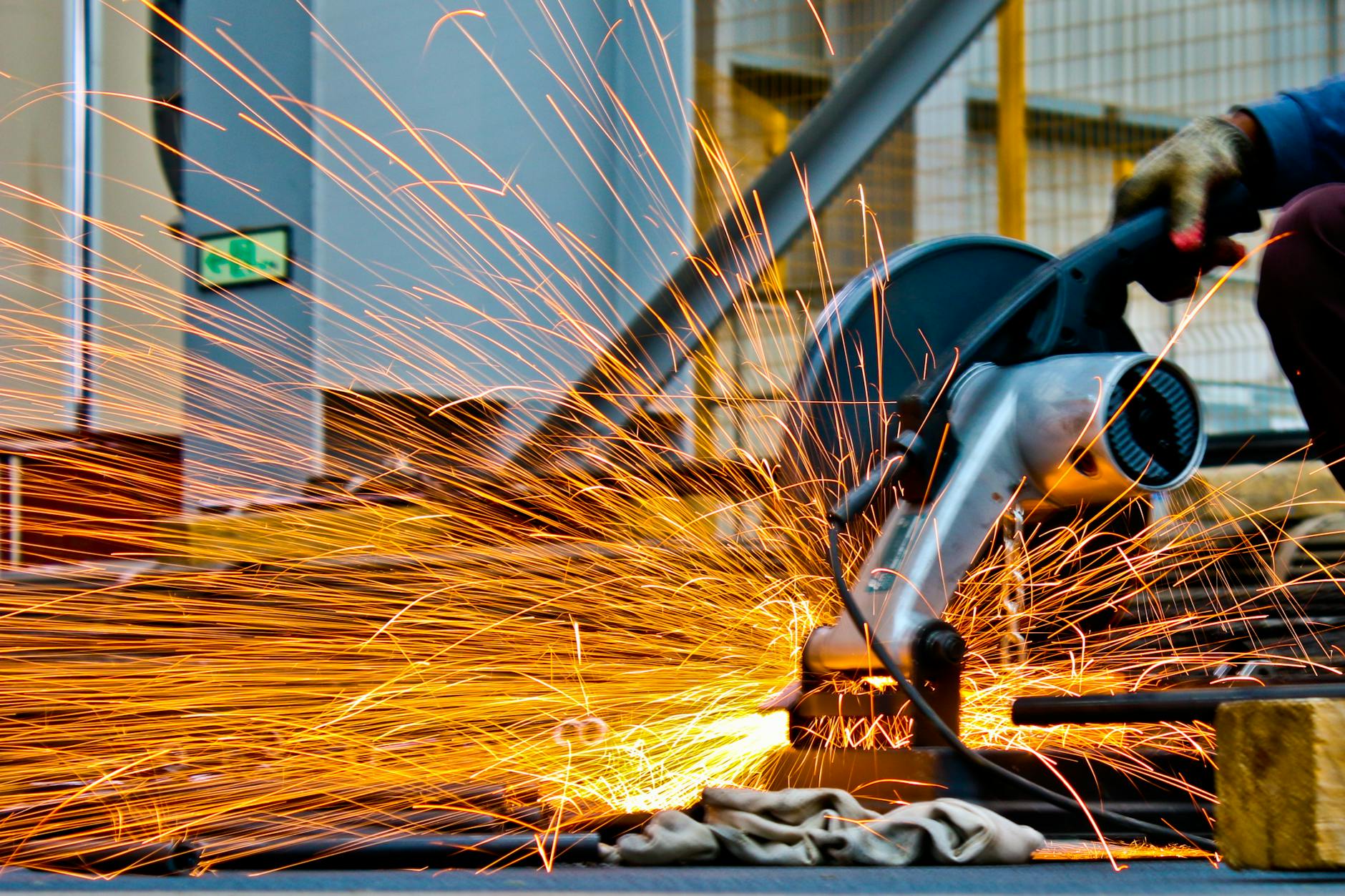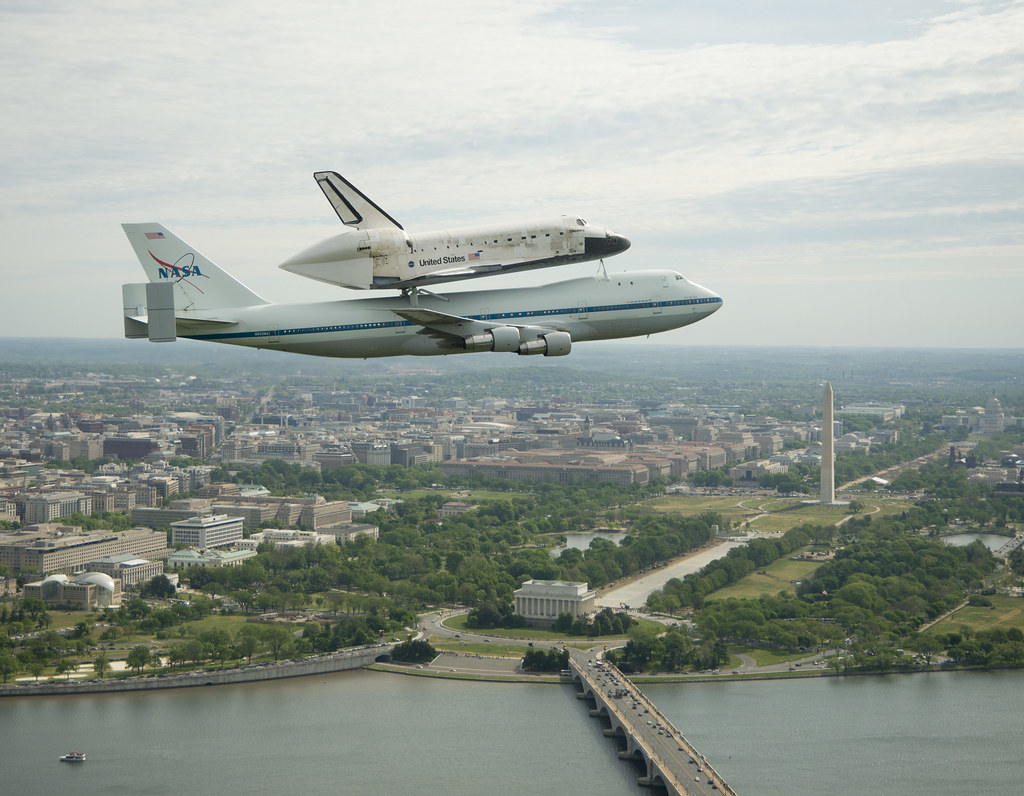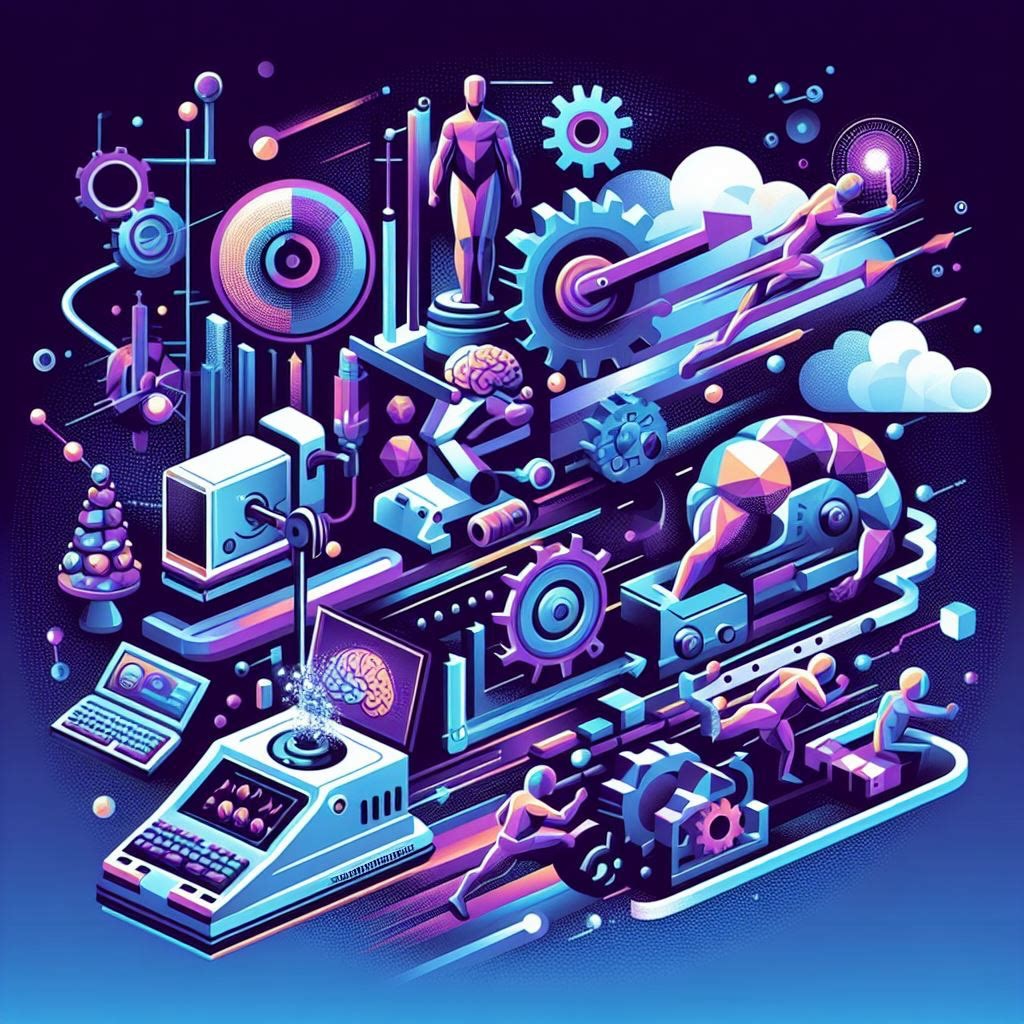In the era of the Industrial Revolution, machines were revolutionary in augmenting humans’ physical capabilities and paved the way for humans to achieve more physically than possible naturally. We take for granted the things we can achieve thanks to the physical power of the machines we invented. The development of computers likewise marks a notable shift as they began to enhance human cognition. This transition from augmenting muscles to augmenting brains has significantly shaped the way we interact with technology, and should be embraced versus feared.

In the annals of technological history, there’s a pivotal moment that marks the transition from the Industrial Revolution’s machinery to the digital age’s computers. This shift isn’t just about upgrading tools; it’s a profound transformation that alters how humans interact with technology. In the bygone era, machines revolutionized physical labor, amplifying human strength and productivity. Fast forward to the advent of computers, and the focus shifts from brawn to brain. This evolution from augmenting muscles to augmenting minds is pivotal, shaping our relationship with technology in ways previously unimaginable.
Steve Jobs once likened computers to a “bicycle for the mind,” a succinct metaphor that encapsulates the essence of this transformation. Computers ceased to be mere calculators or data processors; they became vehicles for amplifying human intellect, enabling us to explore, create, and connect on unprecedented scales with greater efficiency than possible on our own. With every keystroke, click, and swipe, computers extend our cognitive abilities, propelling us towards new frontiers of knowledge and innovation. We can go places impossible without the advent of machines to physically power us forward, while piloting us there safely.

Artificial intelligence, a product of this technological evolution, continuously pushes the boundaries of what machines can achieve, paving the way for unprecedented advancements in various fields. From the mechanical marvels of the past to the cutting-edge AI systems of today, the journey of computers and artificial intelligence stands as a testament to mankind’s relentless pursuit of innovation and progress.
Artificial Intelligence (AI) was born from decades of research and development, and represents a milestone in humanity’s quest to imbue machines with human-like intelligence. Powered by algorithms and fueled by data, AI systems now possess the capacity to learn, reason, and adapt autonomously. This newfound intelligence transcends the confines of traditional computing, ushering in a new era of possibilities across diverse domains.
From healthcare to finance, transportation to entertainment, AI is revolutionizing industries and redefining what’s possible. In healthcare, AI algorithms analyze medical data with unprecedented speed and accuracy, aiding diagnosis, treatment planning, and drug discovery. In finance, AI-driven algorithms crunch numbers, predict market trends, and optimize investment portfolios with uncanny precision. In transportation, self-driving cars navigate complex environments, promising safer roads and more efficient journeys. Even our ability to predict the weather more than a week in advance is only possible thanks to our inventing AI.
While there have been quite a few negative stories about AI recently, recall that the journey from muscle to mind, from machines to AI, isn’t just about technological prowess. It’s a testament to humanity’s insatiable curiosity, our relentless pursuit of progress, and our capacity to shape the world around us. It’s about pushing the boundaries of what’s possible, challenging the status quo, and embracing the unknown.
Humans don’t make tools. Tools make humans.
As we stand on the precipice of a new technological frontier, let’s remember the lessons of the past and the potential of the future. Let’s harness the power of AI not only to augment our capabilities but to elevate our collective consciousness, empower communities, and forge a brighter, more inclusive future for all. In the grand tapestry of human history, the journey from muscle to mind is but a chapter, but its impact reverberates through the ages, inspiring and empowering generations to come.
